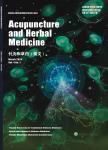Genome sequencing provides potential strategies for drug discovery and synthesis
作者机构:School of Chinese Materia MedicaTianjin University of Traditional Chinese MedicineTianjinChina School of Chinese Materia MedicaChengdu University of Traditional Chinese MedicineChengduChina
出 版 物:《Acupuncture and Herbal Medicine》 (针灸和草药(英文))
年 卷 期:2023年第3卷第4期
页 面:244-255页
学科分类:1006[医学-中西医结合] 10[医学] 100602[医学-中西医结合临床]
基 金:funded by the National Natural Science Foundation of China grant number 81603221.
主 题:Biosynthetic pathways Gene editing Genome sequencing Medicinal plants Secondary metabolites
摘 要:Medicinal plants are renowned for their abundant production of secondary metabolites,which exhibit notable pharmacological activities and great potential for drug development.The biosynthesis of secondary metabolites is highly intricate and influenced by various intrinsic and extrinsic factors,resulting in substantial species diversity and content variation.Consequently,precise regulation of secondary metabolite synthesis is of utmost importance.In recent years,genome sequencing has emerged as a valuable tool for investigating the synthesis and regulation of secondary metabolites in medicinal plants,facilitated by the widespread use of high-throughput sequencing technologies.This review highlights the latest advancements in genome sequencing within this field and presents several strategies for studying secondary metabolites.Specifically,the article elucidates how genome sequencing can unravel the pathways for secondary metabolite synthesis in medicinal plants,offering insights into the functions and regulatory mechanisms of participating enzymes.Comparative analyses of plant genomes allow identification of shared pathways of metabolite synthesis among species,thereby providing novel avenues for obtaining cost-effective biosynthetic intermediates.By examining individual genomic variations,genes or gene clusters associated with the synthesis of specific compounds can be discovered,indicating potential targets and directions for drug development and the exploration of alternative compound sources.Moreover,the advent of gene-editing technology has enabled the precise modifications of medicinal plant genomes.Optimization of specific secondary metabolite synthesis pathways becomes thus feasible,enabling the precise editing of target genes to regulate secondary metabolite production within cells.These findings serve as valuable references and lessons for future drug development endeavors,conservation of rare resources,and the exploration of new resources.



